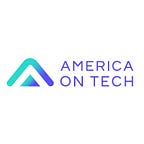Balancing the Opportunity Equation: Making Tech Accessible to ALL Miami Youth
By: America On Tech + powered by Tech Equity Miami
Since 2020, the #MiamiTech movement has promised to transform our beloved 305 into the next global tech hub. This unique convergence of startups, investors, and innovators boasts guaranteed growth for companies, ideas, and economic opportunity for all.
Historically, however, our community has measured success from a short-term perspective. Now more than ever, we must look further down the pipeline and make strategic investments to increase access and exposure for students in grades K-12 to generate the qualified human capital necessary to support this bold vision.
The Tech Opportunity Gap
Unfortunately, for youth of color, especially Black and Latinx youth, digital equity is an issue of social, racial, and economic justice.
In the context of technology education, early racial, gender, and socioeconomic disparities in access to STEM and computer science education in Pre-K-12th grade limit the opportunities that all children have to engage meaningfully with technology, develop computational skills, and explore careers in computer science. Black and Latinx students who do participate in computer science are 8x more likely to major in technology in college. Yet, extracurricular computer science and tech programs that bridge this gap in access — and which are linked to positive academic outcomes — are often costly and inaccessible to Black and Latinx families. This has significant impacts on income and wealth and is particularly evident in Miami.
We have a unique opportunity to leverage the power of Miami’s expanding tech sector to address wealth disparities and create economic resilience in communities that are both overlooked and underestimated.
We Know What Works Well
If we fundamentally believe that STEM exposure unlocks untapped potential, then we must increase access to high-quality tech experiences for K-12 students. America On Tech, a Tech Equity Miami designated initiative that recently expanded to Miami, has three key programs that meet these needs:
First, TECH360 Summer Camp is a three-week summer intensive that introduces rising juniors and seniors in high school to coding through web design and web development. The program teaches industry-aligned technical and professional skills to enable youth to gain knowledge of key coding languages and frameworks including HTML, CSS, JavaScript, and Bootstrap. TECH360 concludes with a Demo Day competition where youth are broken into teams to compete in the development of a website design.
Second, Tech Flex Leaders is an immersive twelve-month program for high school juniors and seniors that provides weekly technology classes taught by technologists, offers mentorship with industry professionals, and provides access to paid summer internships.
Third, Access Tech is an internship program to assist our students in finding meaningful paid jobs and internships in the field that will ultimately lead to the furthering of their education and jobs within the tech industry.
In addition to AOT’s line up, other impactful tech learning environments might include: opportunities to engage with technology, explore computing careers, or enroll in computer science (CS) or advanced STEM courses. To meet the “high quality” threshold, they should involve applied skills, multimodal engagement, an objective evaluation model and be accessible in terms of location, cultural relevance, and learning styles.
Accountability Exists in Outcomes Driven Impact
AOT Miami plans to contribute to Tech Equity Miami’s goal of exposing 50,000 students from underserved communities to STEM and digital literacy over a five-year period by serving upwards of 800 youth over a three-year period.
However, it’s not enough to simply make tech experiences available, we must hold ourselves accountable to ensure we measure critical key performance indicators that align with the outcomes we seek, including the number of underrepresented K-12 students exposed to tech experiences (both in school and extracurricular classroom environments) as well as the demographic and categorical distribution of those participating.
Additionally, we cannot overlook the power of longitudinal data and stories of impact. For example, since its 2014 founding, AOT’s alumni network consists of over 3,500 highly trained students of color and 85% of them are pursuing computer science and information technology programs at 2-year or 4-year colleges and universities across the country or are employed in the tech industry. Students like Jordane and Tanya have gone through our programs and are now employed by places like Amazon and Uber.
Learn more about America On Tech’s impact here.
To learn more, visit: www.techequitymiami.org.
